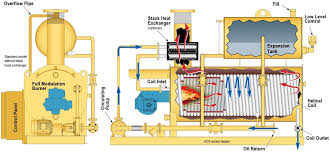
Jan . 26, 2025 07:51 Back to list
Gas (oil) fired steam boiler
Understanding the Various Factors Influencing Gas Steam Boiler Costs
Daily operational costs are a critical component of the total investment of a gas steam boiler. Fuel consumption is a primary factor, and using high-efficiency models can significantly reduce gas bills. Additionally, integrating modern technology such as automated controls and energy management systems can help in reducing operational costs by optimizing the boiler's performance according to real-time demands. 4. Maintenance and Repair Regular maintenance is vital in sustaining optimal boiler performance and avoiding unexpected repair costs. The frequency and cost of maintenance depend on the boiler's sophistication, with more advanced systems often requiring specialized services. Predictive maintenance, enabled by modern monitoring systems, can provide early warnings that mitigate expensive breakdowns, thereby preserving the system’s efficiency and longevity. 5. Supplier and Brand Value Brand reputation plays a crucial part in determining the pricing of gas steam boilers. Renowned manufacturers may offer more expensive products, but they often provide superior service warranties, higher build quality, and better post-purchase support. Investing in well-established brands can result in fewer issues over the lifespan of the boiler and strong customer support networks that enhance trust and reliability. 6. Environmental Considerations and Subsidies Government incentives and subsidies for environmentally friendly products can significantly impact the cost of purchasing a gas steam boiler. Boilers that meet or exceed regulatory efficiency and emissions standards can benefit from tax credits or rebates that substantially reduce the overall expense. Moreover, embracing environmentally responsible solutions inherently benefits long-term operational costs by reducing energy consumption and carbon footprint. In conclusion, scrutinizing the multifaceted aspects affecting the cost of a gas steam boiler is indispensable for any serious buyer. This ensures a sound investment that aligns with both financial and operational expectations. Furthermore, acknowledging the ongoing advances in boiler technology can yield better decision-making for potential upgrades or new purchases. In pursuing the best fit, it's imperative not only to consider immediate financial implications but also to weigh long-term efficiency gains and sustainability.


Daily operational costs are a critical component of the total investment of a gas steam boiler. Fuel consumption is a primary factor, and using high-efficiency models can significantly reduce gas bills. Additionally, integrating modern technology such as automated controls and energy management systems can help in reducing operational costs by optimizing the boiler's performance according to real-time demands. 4. Maintenance and Repair Regular maintenance is vital in sustaining optimal boiler performance and avoiding unexpected repair costs. The frequency and cost of maintenance depend on the boiler's sophistication, with more advanced systems often requiring specialized services. Predictive maintenance, enabled by modern monitoring systems, can provide early warnings that mitigate expensive breakdowns, thereby preserving the system’s efficiency and longevity. 5. Supplier and Brand Value Brand reputation plays a crucial part in determining the pricing of gas steam boilers. Renowned manufacturers may offer more expensive products, but they often provide superior service warranties, higher build quality, and better post-purchase support. Investing in well-established brands can result in fewer issues over the lifespan of the boiler and strong customer support networks that enhance trust and reliability. 6. Environmental Considerations and Subsidies Government incentives and subsidies for environmentally friendly products can significantly impact the cost of purchasing a gas steam boiler. Boilers that meet or exceed regulatory efficiency and emissions standards can benefit from tax credits or rebates that substantially reduce the overall expense. Moreover, embracing environmentally responsible solutions inherently benefits long-term operational costs by reducing energy consumption and carbon footprint. In conclusion, scrutinizing the multifaceted aspects affecting the cost of a gas steam boiler is indispensable for any serious buyer. This ensures a sound investment that aligns with both financial and operational expectations. Furthermore, acknowledging the ongoing advances in boiler technology can yield better decision-making for potential upgrades or new purchases. In pursuing the best fit, it's imperative not only to consider immediate financial implications but also to weigh long-term efficiency gains and sustainability.
Share
Prev:
Next:
Latest News
-
High-Efficiency Commercial Oil Fired Steam Boiler for Industry
NewsJul.30,2025
-
High-Efficiency Biomass Fired Thermal Oil Boiler Solutions
NewsJul.30,2025
-
High Efficiency Gas Fired Thermal Oil Boiler for Industrial Heating
NewsJul.29,2025
-
High-Efficiency Gas Fired Hot Water Boiler for Sale – Reliable & Affordable
NewsJul.29,2025
-
High Efficiency Biomass Fired Hot Water Boiler for Industrial and Commercial Use
NewsJul.29,2025
-
High-Efficiency Biomass Fired Hot Water Boiler for Industrial Use
NewsJul.28,2025
Related PRODUCTS
Copyright © 2025 HEBEI HONGZE BOILER MANUFACTURING CO., LTD. All Rights Reserved. Sitemap | Privacy Policy






















